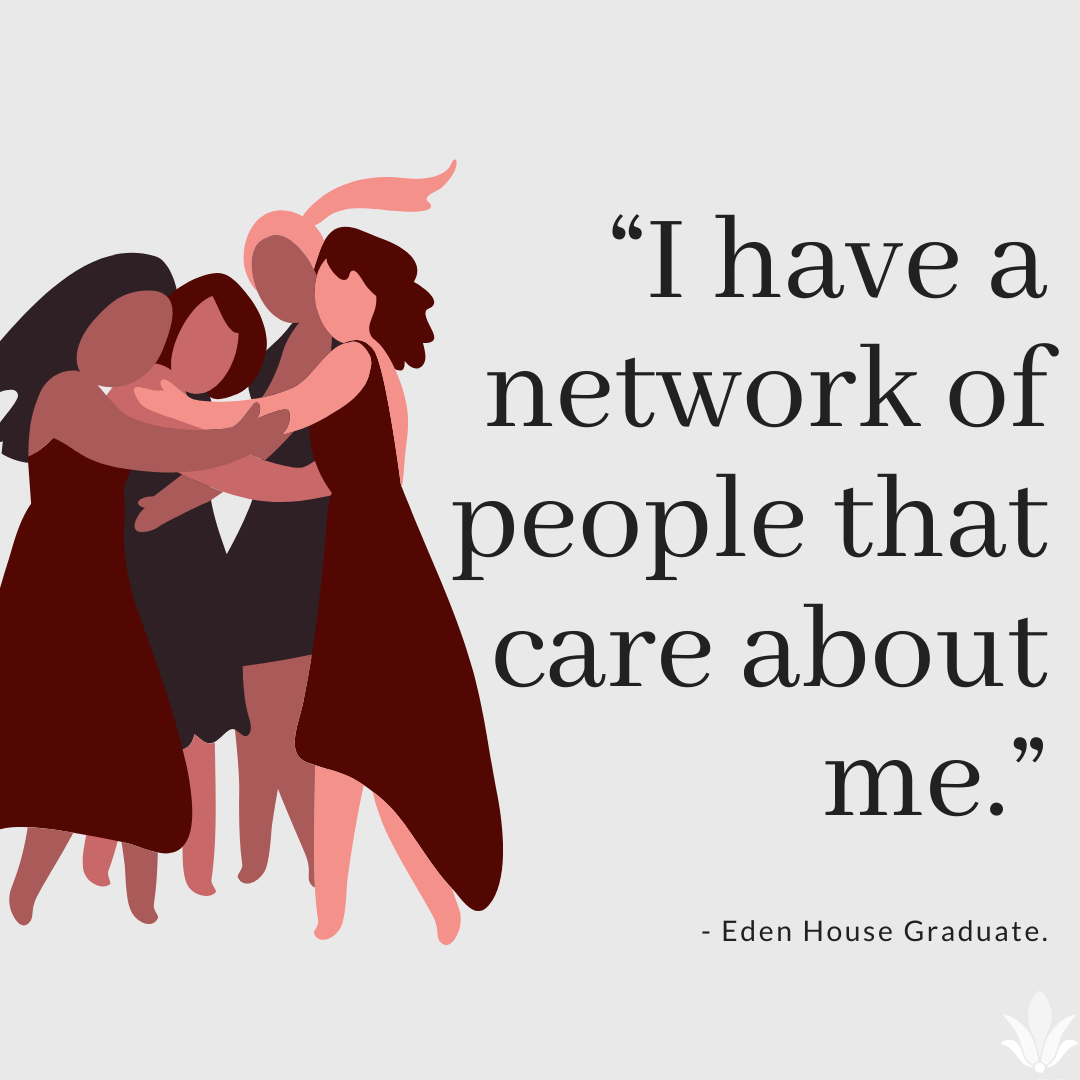Changemaker Catalyst Award recipient, Abby Bean, spent summer 2020 working as an intern at Eden House New Orleans, a nonprofit that works to eradicate human trafficking and provides long-term shelter and recovery services to survivors. She was able to see first-hand how the COVID-19 pandemic has impacted survivors of human trafficking and learn about community-based advocacy work.

This past summer, I worked as an intern at Eden House New Orleans, a nonprofit that provides long-term housing and resources for survivors of human trafficking and works to eradicate human trafficking. When I started considering my summer plans back in January 2020, which feels like it was 10 years ago, I knew I wanted to spend the summer in New Orleans doing some type of service. Despite the bizarre and wild circumstances, Eden House worked to ensure that interns would be able to have an experience working at the house with the residents and full-time staff. Thankfully, the Taylor Center and other institutions on campus, Newcomb Institute and Newcomb-Tulane College still provided me funding to work with Eden House.

I spent most of my summer inside my house, and left basically only to go to Eden House, the grocery store, or a walk around the neighborhood. We talked a lot at the house about the ways in which the pandemic has worsened conditions that allow the human trafficking industry to thrive, and has created conditions that can be extremely challenging for survivors. This post from the Polaris Project explains that people living in poverty and people of color are already more vulnerable to human trafficking and COVID-19, because of the economic fallout of racism and the near impossibility of accessing adequate healthcare in this country. High rates of unemployment also contribute to a rise in human trafficking, and this UN document explains that people at risk of exploitation, like undocumented migrants or LGBTQ youth, are more vulnerable to trafficking during COVID because of measures put in place to control the virus. The loneliness, isolation, and anxiety that have come with the pandemic are also magnified for survivors of trauma.


The day-to-day work at Eden House wasn’t always what I expected, although I can say I had very few expectations going into my internship. One day I carried carloads of donated furniture down from an apartment, some days I scanned and organized files for the audit, and one day I watched a movie about addiction with residents and clinical care staff. I spent an afternoon weeding the backyard garden for a graduation ceremony, and I’m working now to help prepare for our virtual fundraiser in November
I learned much of the nitty-gritty about how nonprofits work, particularly small, donor-funded nonprofits, and the importance of good communication and community support.
The most unique thing about Eden House is the sense of community. The full-time staff is small, but the house runs because the staff works so tirelessly for these women, and everything that happens at the house is rooted in love. I built close working relationships with my supervisor, Eden House’s Executive Director, and my fellow interns. We talked a lot about self-care and encouraged each other to live well-rounded lives. Nonprofits can get a bad reputation, and deservedly so in some cases, but every bit of the work done at Eden House is based in the notion that everyone is deserving of love, help, and second chances, and that we are all capable of living through impossible pain and rebuilding our lives.

Interning at Eden House has helped make me acutely aware of my privileges in a way that I simply haven’t been able to in a classroom, academic setting. I’m inspired everyday by the residents and their hard work, and the efforts of the staff helping them get back on their feet. I am lucky enough to be continuing in my internship for the fall semester as well, and I’m very excited to continue going to the house and getting to know the residents and staff. Even though the summer certainly did not turn out the way any of us expected, I’m thankful that my experience was framed by my work at Eden House, and I’m extremely thankful to the Taylor Center for making that possible for me!
